news
196-day-old strike : Negotiation between the leadership of the ASUU and the ministry, Ngige writes Adamu on status
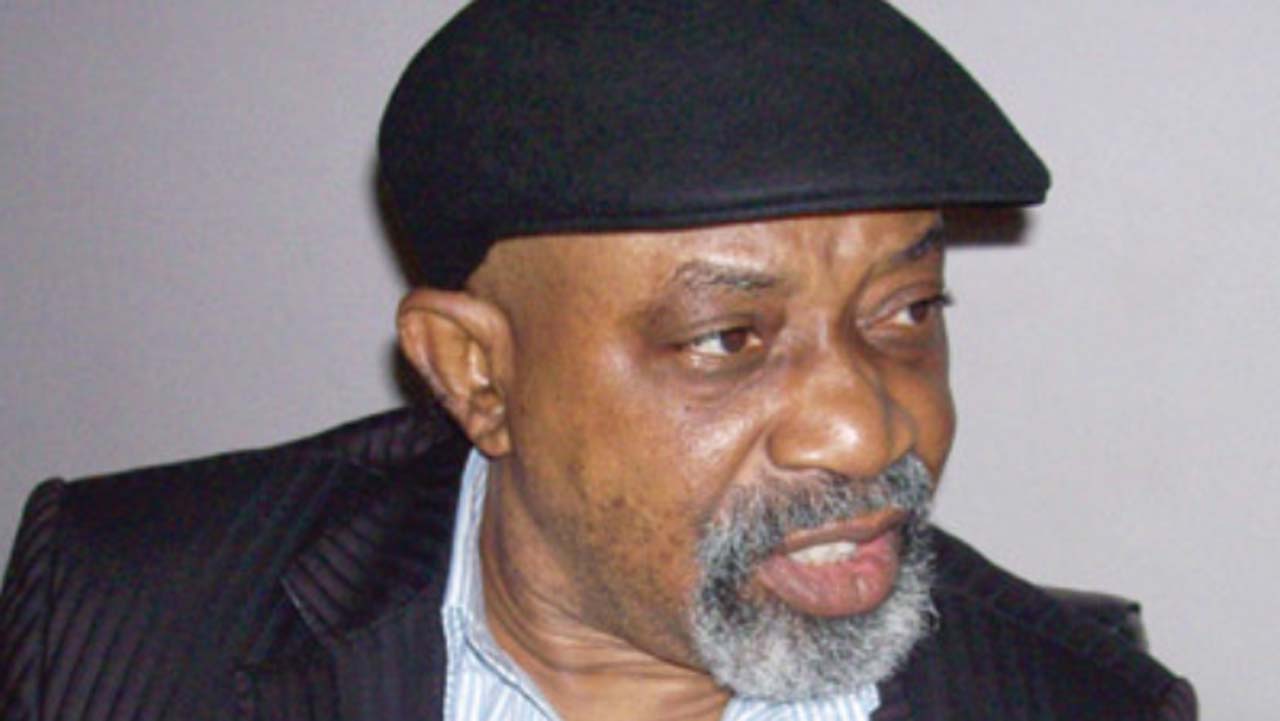
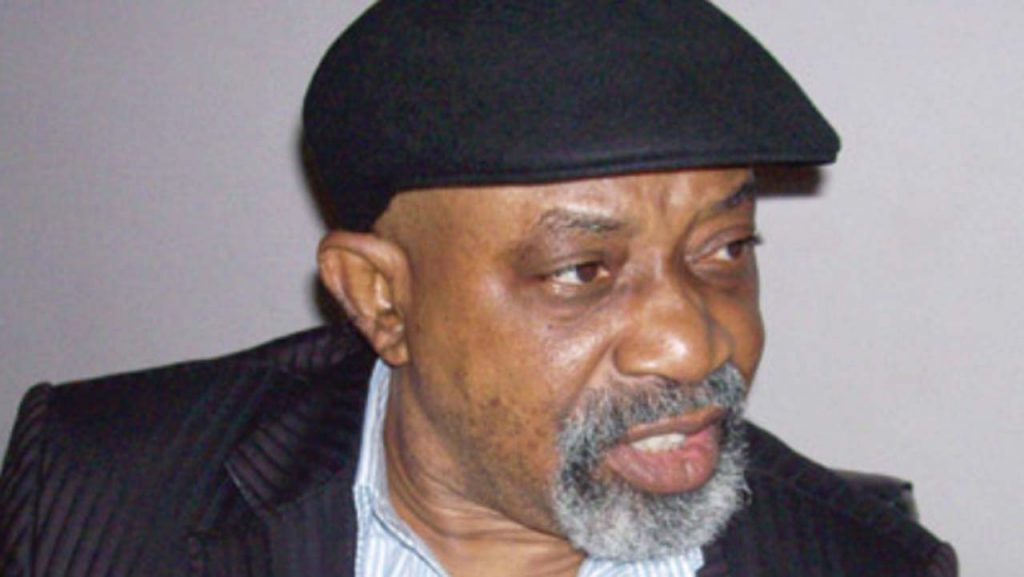 …Union’s selfish, political —NANS
…Union’s selfish, political —NANS
…They should have considered our children’s plight —Parents
..We’ve solved 80% of ASUU’s demands—FG claims
…State varsities’ ASUU membership voluntary, say pro-chancellors
..Back CONUA on liberalisation of academic unions
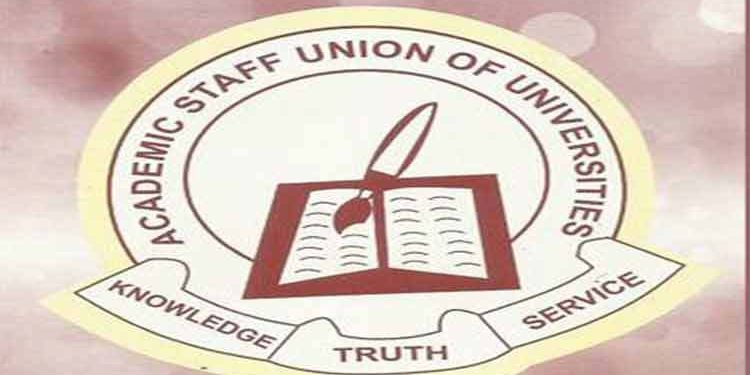 AS members of the Academic Staff Union of Universities, ASUU, failed to call off their 196-day-old strike, yesterday, indications have emerged that the Minister of Labour and Employment, Senator Chris Ngige, has written the Minister of Education, Mallam Adamu Adamu, to get the situation report on the negotiation between the leadership of the union and the ministry.
AS members of the Academic Staff Union of Universities, ASUU, failed to call off their 196-day-old strike, yesterday, indications have emerged that the Minister of Labour and Employment, Senator Chris Ngige, has written the Minister of Education, Mallam Adamu Adamu, to get the situation report on the negotiation between the leadership of the union and the ministry.
Also, there are insinuations that the Federal Government may drag ASUU to the National Industrial Court for refusing to suspend the strike, after some of its concerns had been addressed.
An impeccable source in the Ministry of Labour and Employment did not confirm whether there was any such move to take ASUU to the Industrial Court, but the source said the Minister of Labour, who is the Conciliator-in-Chief, might meet with the Minister of Education to know the status of the ongoing renegotiation talks.
“We gathered that the Minister (Ngige) has written to the Minister of Education to know the status of the ongoing negotiation with ASUU. The union is also expected to inform the ministry,” the source said.
Reminded that ASUU has extended the strike, the source said: “There must be a reason they decided to extend the strike, despite government’s offer to them. But I don’t know whether they have given their reasons for the action to the Minister of Education; the union is supposed to write to the ministry to state why they are extending the strike. They are also supposed to copy the Minister of Labour.”
Another source said since the Minister of Education was the direct employer of the university teachers and the one handling the negotiation matters, it was normal that he should write his counterpart in the Ministry of Labour on the situation report.
“You know the matter was sent to Mallam Adamu to renegotiate the 2009 agreement with ASUU, that is why the Professor Nimi Briggs Renegotiation Committee was set up. If there is any breakdown, the Minister of Education should write a report on the status of the negotiation to the Minister of Labour. ASUU is also expected to send a report to the Labour Minister,” he said.
Parents of students in public universities and their wards were, yesterday, left disappointed when members of ASUU failed to call off their industrial action, after their National Executive Council, NEC, meeting in Abuja.
Instead of the anticipated easing of tension in the ivory towers, the union rather opted to roll over the strike that entered 196 days, yesterday. The industrial action started on February 14, this year.
Though the national leadership of the union is yet to come up with an official statement on the meeting, it was gathered that the meeting resolved to go on indefinite strike.
A member of the NEC told Vanguard that a formal position of the union in respect of the NEC meeting would be communicated through ASUU President, Prof. Emmanuel Osodeke, who he noted was the person with the responsibility to do so.
“We resolved in our just concluded NEC meeting that we should make the ongoing strike indefinite since the federal government has failed to show any commitment to addressing the grey areas that led us to this action.
”Our president, as usual, would communicate this, among other decisions, to the public through the media,” he said, refusing to speak further.
Commenting on the development, the National President of the National Association of Nigerian Students, NANS, Sunday Asefon, described the action of the union as political, warning that the lecturers should no longer claim they were fighting for the welfare of students.
“Yes, strike is a weapon by unions to agitate for their demands to be met. But in this case, ASUU has deviated from their original intention. They are now pursuing their own personal interests.
”The leadership of ASUU is selfish. We won’t support them again, we were supporting them before because the issue of Revitalisation Fund for the universities was involved. Now, they are concerned about their salaries and welfare.
“We can say the Federal Government has not done well, but that is not to say that the union should be inconsiderate too. Most of the things they are now complaining about, the UTAS, salary increment, Earned Academic Allowances, who are they for?
”They are for the lecturers now. We are not saying the government should not pay them, but they should know that students were at home for nine months in 2020 and now for over six months. We may have to call out Nigerian students to protest against this,” he said.
The National President of the National Parent Teacher Association of Nigeria, NAPTAN, Haruna Danjuma, expressed disappointment about the turn of events.
“We thought the issues would be amicably resolved and the strike suspended, but that was not the case. It is a big blow. We need divine intervention in this matter. The government has more than one thousand and one ways to resolve this matter.
”We implore the President to thread softly on the issue of “No work, no pay,” as that is the major grey area now.
“We appeal that the Nigeria Labour Congress, NLC, the FG and ASUU hold a meeting to resolve this. The union and the government should consider the plight of our children. There is no need to escalate the situation,” he said.
We’ve solved 80% of ASUU’s demands —FG
Reacting to the development, the FG said it had addressed 80 per cent of the union’s demands, noting that the extension of the strike was unreasonable.
The Federal Ministry of Education, speaking through its Director of Press and Public Relations, Mr Bem Goong, said:”If you bring some demands and almost 80% have been attended to, there is no need to drag the strike anymore. It is unreasonable for the strike to be lingering since the government has worked towards fulfilling most of the demands.”
Mr. Going who said the federal government had deployed all measures to end the strike, added: “As regards the next steps, the government has already inaugurated a committee to harmonize the Integrated Payroll and Personnel Information System, IPPIS, the University Transparency and Accountability Solution, UTAS and the University Peculiar Personnel and Payroll System,U3PS. This will ensure that the government will pay with only one payment platform that will harmonize all the technical peculiarities.”
Recall that the Minister of Education, Malam Adamu, had last week, claimed that government had resolved most of the demands of ASUU.
Among the demands addressed, according to Adamu, was the release of N50 billion for the payment of earned allowances for academic and non-academic staff of universities.
State varsities’ ASUU membership voluntary—Pro-chancellors
Meanwhile, the Committee of Pro-Chancellors of state universities yesterday said state universities could not be coerced to implementing the agreement reached between the Federal Government and lecturers in federal universities under the aegis of the Academic Staff Union of Universities.
The committee also called for liberalisation of industrial unions in the university system by registering more unions.
The pro-chancellors also stated that there was a need for the democratisation of membership of unions in the universities, noting that state varsities’ membership was voluntary.
State universities have come under fire over their failure to pull out of the ongoing strike declared by the national body of ASUU.
In a statement yesterday by the chairman, Yusuf Ali, SAN, the pro-chancellors said: “ The Committee of Pro-Chancellors of State-owned Universities read with alarm and disbelief a statement made by the President of the ASUU, Prof. Emmanuel Osodike on a television programme where he said that state universities are ‘irrelevant and quacks’.
“Our first reaction was to ignore this tendentious, ill-conceived and flagrant unconscionable statement by the President of ASUU, but on reflection, it was thought necessary to do a rejoinder to this rather unfortunate statement, having regard to the position of the President of ASUU in the scheme of things in our university system in Nigeria.
“Though COPSUN will not want to go into any diatribe with the president of ASUU, the committee wishes to state as follows to put records straight:
“That the Pro-Chancellors of our state universities and, indeed, members of the councils are distinguished and accomplished eminent persons who served and still serve this nation in many capacities.”
news
Alleged Coup Attempt Against Tinubu, Fraud Charges: Sylva Faces Possible Arraignment in Absentia
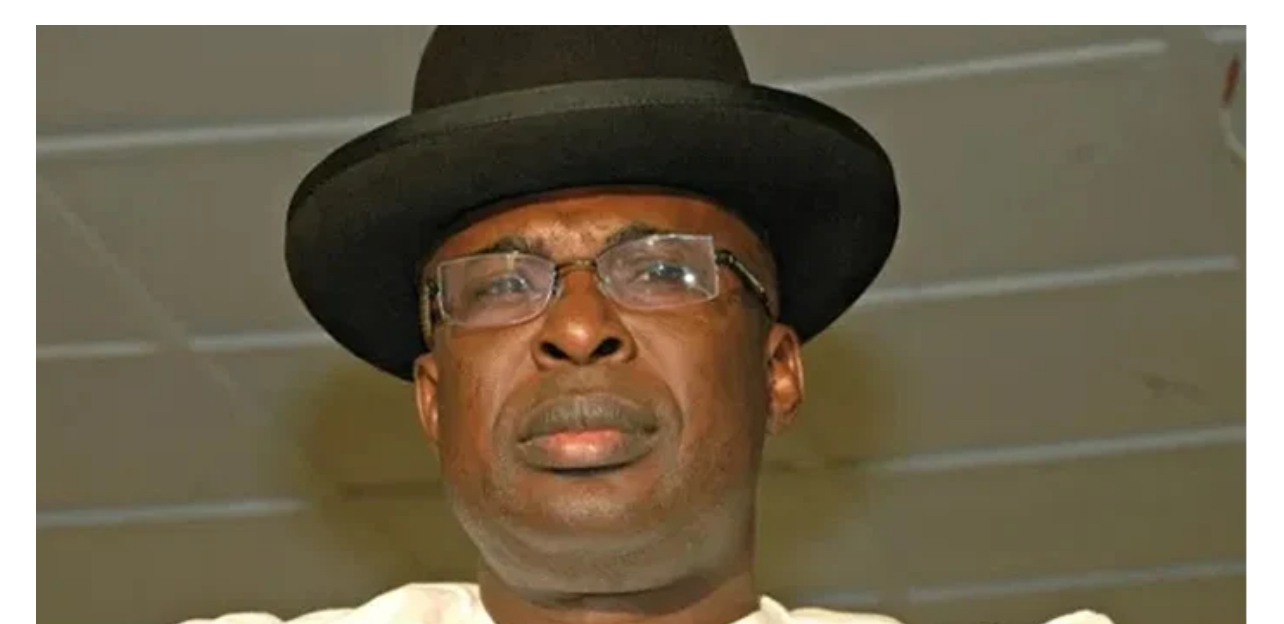
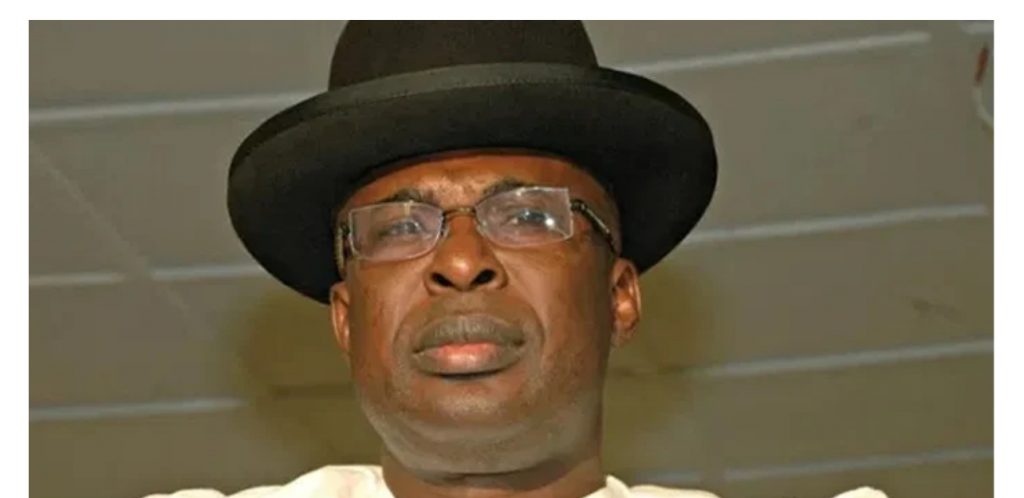
Former Bayelsa State Governor, Timipre Sylva, has yet to return to the country months after his Abuja residence was raided by operatives of the Defence Intelligence Agency.
It was reported that the raid was connected with investigations into the alleged coup attempt against President Bola Tinubu.
Our correspondence gathered that Sylva, who was also declared wanted by the Economic and Financial Crimes Commission over alleged $14,859,257 fraud, might be arraigned in absentia for financial crimes.
Top officers of the Department of State Services and the EFCC told one of our correspondents that the International Criminal Police Organisation and other Nigerian partners in the war against crime were currently trailing the former governor.
The Defence Headquarters had, in October 2025, dismissed reports of a coup attempt, despite the arrest and detention of 16 officers accused of sponsoring the plot.
The DHQ, in a statement by its Director of Defence Information, Brig Gen Tukur Gusau, on October 18, 2025, denied a Sahara Reporters story linking the detention of the officers to a failed coup and the cancellation of the October 1 Independence Day parade.
Gusau described the report as “intended to cause unnecessary tension and distrust among the populace.”
“The ongoing investigation involving the 16 officers is a routine internal process aimed at ensuring discipline and professionalism within the ranks. An investigative panel has been duly constituted, and its findings will be made public,” he said.
However, last Monday, the military backtracked, confirming that there was indeed a plot to topple Tinubu’s administration.
Presenting the outcome of investigations on the detained officers, the new Director of Defence Information, Maj Gen Samaila Uba, said the findings identified several officers with cases to answer over allegations of plotting to overthrow the government.
He said, “The findings identified a number of officers with allegations of plotting to overthrow the government, which is inconsistent with the ethics, values and professional standards required of members of the AFN.”
He noted that those indicted would be formally arraigned before relevant military judicial panels to face trial in line with the Armed Forces Act and other applicable service regulations.
Following the arrest of the 16 military officers, Sylva’s Abuja residence was raided on October 25, 2025, by operatives of the DIA.
Sylva was out of the country at the time his house was raided, but his younger brother, Paga, who serves as his Special Assistant on Domestic Affairs, along with his driver, was arrested during the operation.
Also, the former governor was declared wanted on November 10, 2025, over an alleged case of “conspiracy and dishonest conversion” of $14,859,257, part of funds injected by the Nigerian Content Development and Monitoring Board into Atlantic International Refinery and Petrochemical Limited for the construction of a refinery.
However, Sylva’s Special Assistant on Media and Public Affairs, Julius Bokoru, dismissed reports linking his principal to the coup plot, describing them as baseless and politically motivated.
He described the reports as the handiwork of “desperate and self-seeking politicians seeking to actualise their ambitions ahead of the 2027 elections.”
In a statement, Bokoru condemned the EFCC’s action, noting that the former minister was undergoing medical examination in the UK and would honour the commission’s invitation upon his return to Nigeria.
However, three months after being declared wanted, Sylva has yet to return to the country.
Our Findings revealed that the EFCC had alerted Interpol to facilitate the arrest of the former governor.
Although the Interpol spokesperson in Nigeria, Benjamin Hundeyin, who also doubles as the Force Public Relations Officer, neither answered calls nor responded to messages sent to his phone, top security officers, including DSS and police personnel, said Interpol was involved in efforts to apprehend Sylva.
“Interpol was contacted immediately after the former governor was declared wanted. Apart from the EFCC, the service is also after him. He can’t hide forever. He should submit himself for investigation if he is indeed innocent.
“Nnamdi Kanu was out of the country for a while, thinking he was off the radar. But where is he today? We will also get Sylva,” said a DSS operative knowledgeable about the matter.
Similarly, an EFCC officer, who spoke with our correspondence on condition of anonymity because he was not authorised to speak on the matter, disclosed that Sylva would be arraigned.
“He is still on our wanted list. We are looking for the right time to arraign him. However, investigations are ongoing. We are building our case against him and, when concluded, he will be charged,” the source said.
Asked if the commission would proceed to court before his apprehension, the source said Sylva could be arraigned in absentia.
“It is possible, and the law makes provision for it. However, we have not concluded that this is the option we will take. But legally, it is possible,” he added.
Speaking with one of our correspondents, another EFCC operative urged the former governor to turn himself in.
“When a suspect of such status is declared wanted, all our partners around the world are placed on notice. Wherever he is, he will be traced. The right thing to do is to turn yourself in,” he added.
However, when contacted last Thursday, Sylva’s spokesperson declined to comment on the matter.
“Given the confirmation by the Defence Headquarters, this is now a national security matter. I am not in a position to comment on speculations, travel or investigations. Relevant authorities are best placed to speak when appropriate,” Bokoru said in a text message.
news
Nigeria and Türkiye Agree to Accelerate Trade, Energy and Defence Partnerships, Says Tinubu
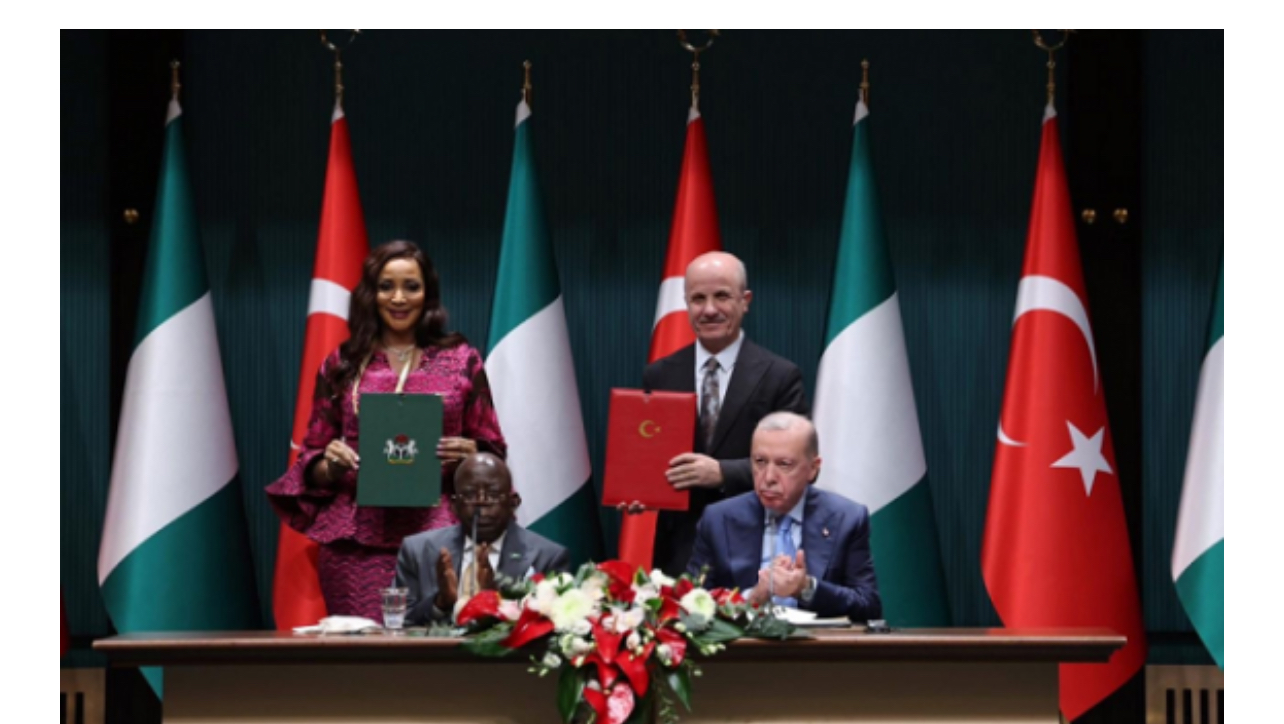
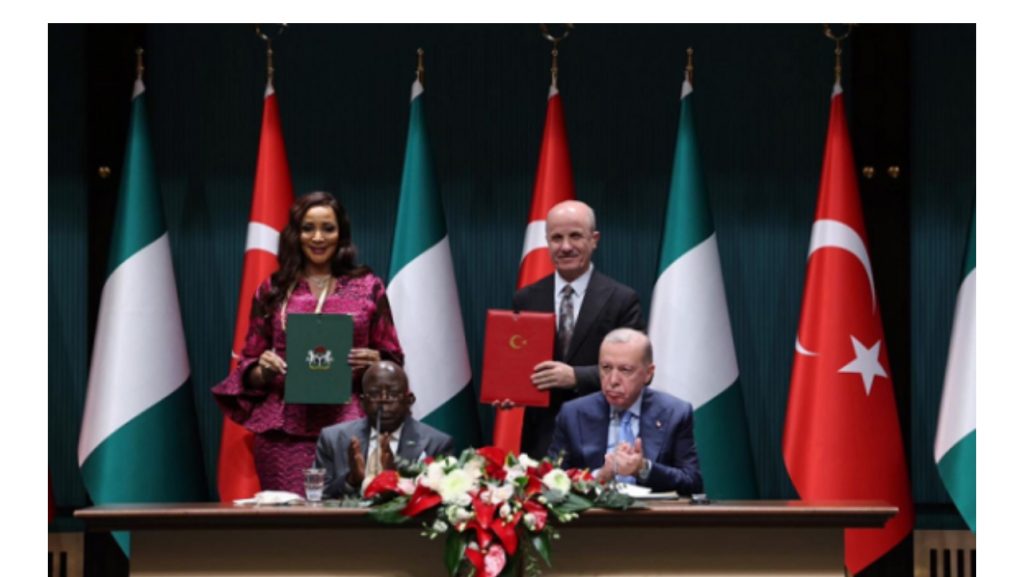 President Bola Tinubu says Nigeria and Türkiye have agreed to fast-track cooperation in trade, energy and defence to boost jobs, investment and shared prosperity.
President Bola Tinubu says Nigeria and Türkiye have agreed to fast-track cooperation in trade, energy and defence to boost jobs, investment and shared prosperity.
The President disclosed this on Tuesday via his official X handle during his ongoing State Visit to Ankara, Türkiye.
Tinubu said discussions with Turkish President Recep Tayyip Erdoğan focused on deepening bilateral relations and delivering tangible economic benefits for citizens of both countries.
“President Recep Tayyip Erdoğan and I reaffirmed our shared ambition, which speaks directly to jobs, investment and opportunity for our people,” the President said.
He said both leaders agreed on the need to expand trade volumes and remove structural barriers limiting business growth between Nigeria and Türkiye.
“We are creating a clear pathway to a five-billion-dollar trade volume between Nigeria and Türkiye,” Tinubu stated.
The President described the talks as practical and forward-looking, driven by mutual interests and shared regional and global responsibilities.
“Our conversations were practical and forward-looking: trade and investment, energy, education, defence cooperation, peace and security,” he said.
Tinubu announced the establishment of a Joint Economy and Trade Committee to drive implementation of agreements and attract fresh investments.
“The creation of a Joint Economy and Trade Committee will unlock new flows of capital,” the President noted.
He said the committee would also support industrial growth, technology transfer and stronger private sector participation.
Tinubu welcomed President Erdoğan’s acknowledgement of Nigeria’s ongoing reforms, especially in the energy and investment sectors.
“I welcome President Erdoğan’s recognition of Nigeria’s reform momentum, particularly in the energy sector,” he said.
The President said the renewed confidence reflected Nigeria’s commitment to transparency, stability and sustainable economic growth.
“We are determined to build an economy that works for everyone, including the most vulnerable,” Tinubu added.
On regional security, Tinubu reaffirmed Nigeria’s responsibility to promote peace and stability across Africa.
“Nigeria will continue to play its role in peace and stability in Africa,” the President said.
He said Türkiye’s expertise in counter-terrorism and defence cooperation would strengthen collective responses to emerging security threats.
“Türkiye’s experience and readiness to cooperate in training, intelligence sharing and counter-terrorism strengthen our resolve,” he stated.
Tinubu said nine bilateral agreements were exchanged at the end of the meetings between both leaders.
The agreements cover defence, education, media cooperation, diaspora policy, trade facilitation, social development and institutional collaboration.
“Nigeria remains open for serious partnership. Open to trade without barriers, ideas, skills and investment that create value and shared prosperity,” he said.
Tinubu reaffirmed Nigeria’s commitment to inclusive growth, peaceful coexistence and active global engagement.
“We are building an inclusive economy. We are strengthening peace. Nigeria will continue to engage the world with confidence and clarity,” Tinubu said.
news
Strengthening Cultural Leadership to Eliminate Violence Against Women and Girls
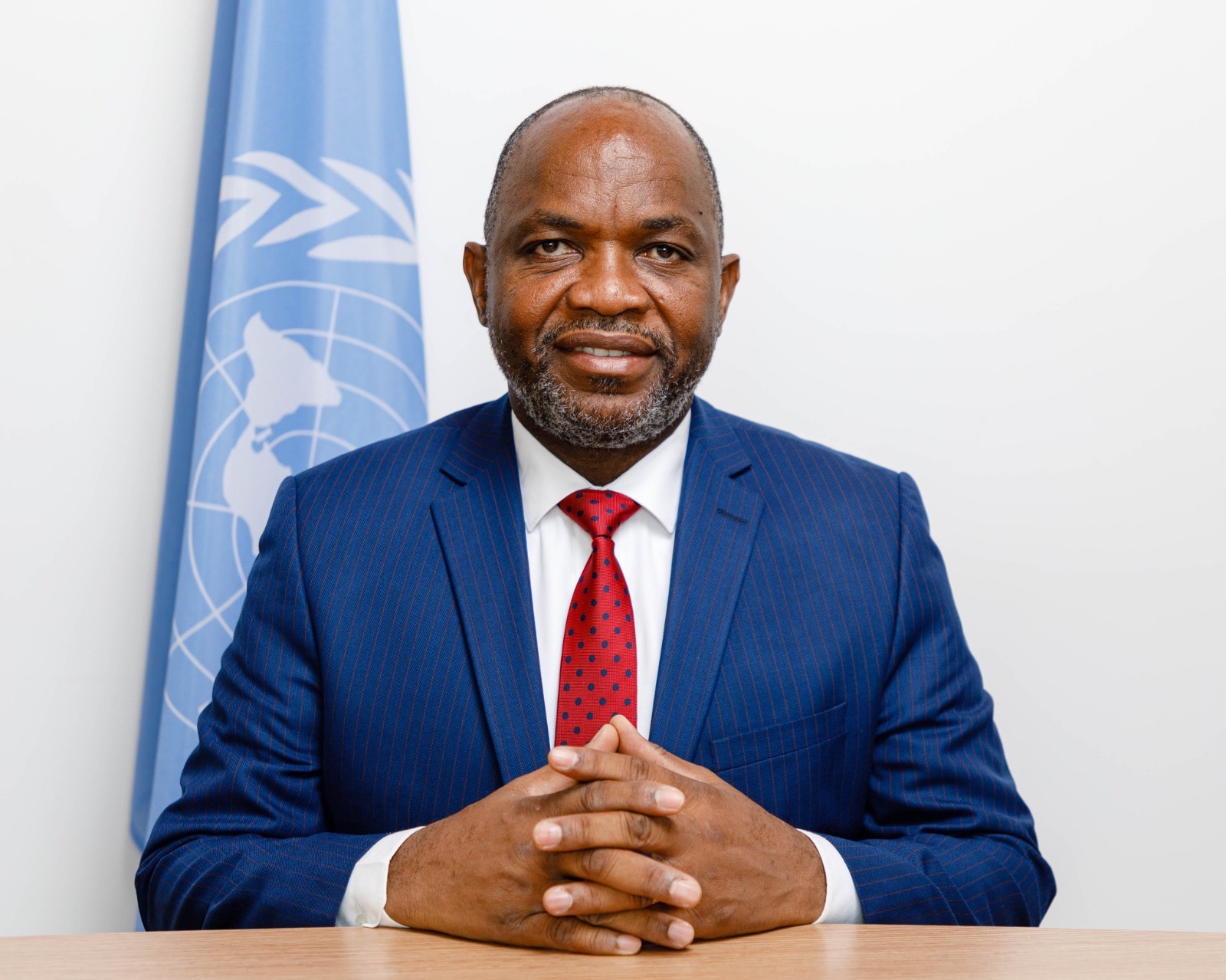
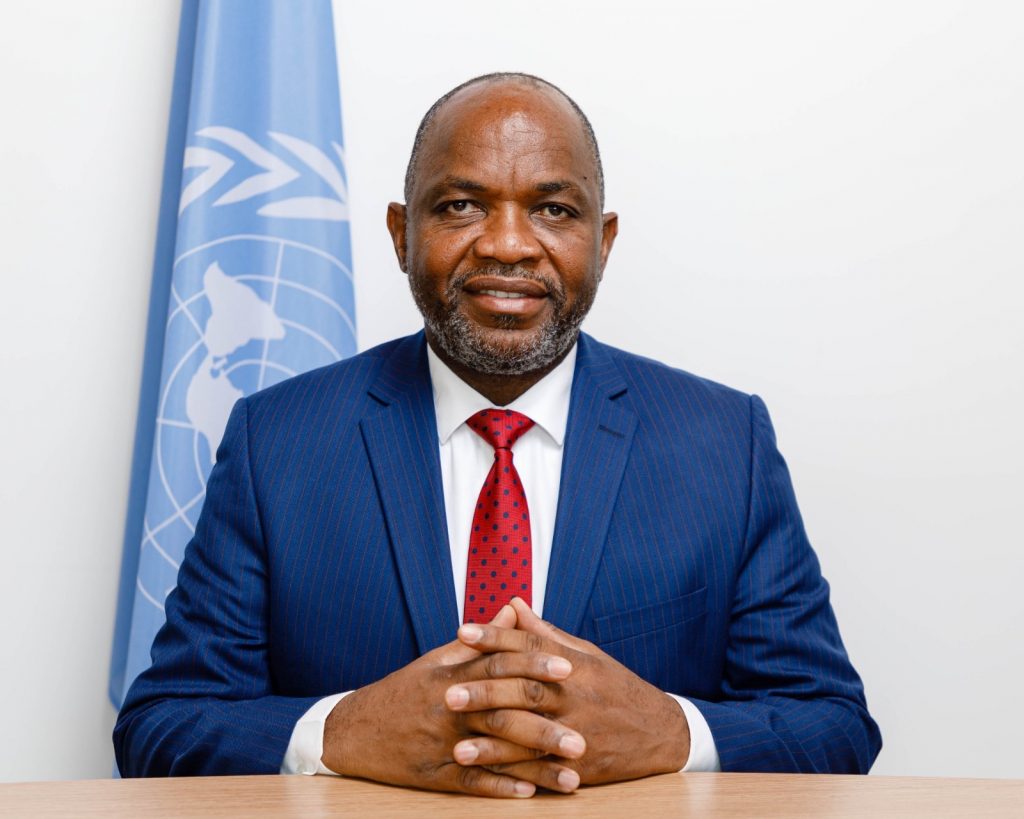
Op-Ed | By Maxime Houinato
As Africa stands at a crossroads in the fight against violence targeting women and girls, the continent’s traditional leaders hold a uniquely powerful key to unlocking lasting change. Their influence—rooted in culture, authority and community trust—positions them not just as custodians of heritage, but as essential partners in redefining norms, protecting rights and leading a continental shift toward safety, dignity and equality for every woman and girl.
In the coming week, traditional leaders from across Africa will meet in Lagos to explore how culture can advance dignity, safety, and equality. Their convening could not be timelier. Violence against women and girls remains widespread, underreported, and a major obstacle to achieving Agenda 2063 and the SDGs. Recent UN and WHO findings confirm that intimate partner and sexual violence persist at alarming levels, underscoring the need for strong, locally led prevention and accountability.
This important convening in Lagos is made possible through the valued support and partnership of the Ford Foundation, whose long-standing commitment to gender justice, human rights, and community-led solutions continues to strengthen efforts across Africa to end violence against women and girls.
Sub-Saharan Africa records some of the world’s highest rates of intimate partner violence, with studies showing that over 40% of women surveyed have experienced emotional, physical, or sexual abuse. Regional data platforms confirm that both lifetime and recent intimate partner violence remain alarmingly common. The effects also span generations: research across 37 African countries links mothers’ experiences of violence to higher risks of illness, undernutrition, and even death among children under five, highlighting IPV as a major threat to child survival and public health.
Where culture must evolve
Africa has made notable strides, yet harmful practices still put millions of girls at risk. West and Central Africa remain the global epicentre of child marriage: nearly 60 million women and girls in the region were married before 18, with Nigeria bearing the largest absolute numbers. These figures, drawn from UNICEF’s databases, remind us that while progress is possible, it is not guaranteed without sustained, community-anchored change.
There are bright spots. In Kenya, the latest Demographic and Health Survey shows FGM prevalence fell to about 15% in 2022, down from 21% in 2014, a testament to policy commitment and local norm change. Yet prevalence remains extremely high among several communities, and sustained vigilance is required to prevent medicalisation or cross-border practices.
Nigerian realities, African momentum
Nigeria mirrors the continental picture: national surveys and administrative data point to widespread physical, sexual and emotional violence, with thousands of cases reported to authorities each year, figures that almost certainly undercount the true burden. The Government’s National GBV Data Collation Tool is an important step toward standardising reporting and improving coordination; scaling it nationwide and linking it to survivor-centred services will save lives.
Encouragingly, the upcoming Conference of African Traditional Leaders in Lagos, already drawing commitments from eminent leaders, signals growing recognition that cultural authority can be mobilised to protect women and girls. UN Women’s work with traditional councils across Africa has shown that when custodians of culture publicly denounce harmful practices, backed by evidence and community dialogue, norms shift and laws gain legitimacy. It is why we helped catalyse platforms like the Council of Traditional Leaders of Africa to champion the abandonment of child marriage and FGM.
Law works best when culture leads
Africa’s legal architecture has advanced. The Maputo Protocol, our continental bill of women’s rights, has spurred reforms, and the African Commission recently moved to develop a Model Law to accelerate domestication and harmonisation across countries. These instruments matter: they provide standards, remedies and budgets. But their power is realised when interpreted through community values that affirm women’s dignity.
Evidence from the Spotlight Initiative, the EU-UN partnership with the African Union, shows that multi-sector, locally-led approaches can reduce harmful practices, strengthen services, and improve prevention. Traditional and religious leaders who champion public declarations, alternative rites of passage, and community bylaws help convert state law into lived practice.
A practical agenda for traditional leaders
I urge traditional leaders to make clear, practical commitments that have been proven to drive change: publicly and repeatedly denounce harmful practices such as child marriage, widowhood rites and FGM, backing declarations with community bylaws aligned with national law; promote survivor-centred justice in customary systems through strong referral pathways, bans on forced reconciliation, and proper case documentation; safeguard girls’ childhoods by ensuring birth and marriage registration, enforcing 18 as the minimum age of marriage, and supporting re-entry to school for married or parenting girls; encourage alternative rites of passage and positive models of masculinity that reject violence; and use their influence to push for stronger laws, adequate funding, and community engagement to address all forms of violence against women and girls.
Culture is not a relic; it is a living promise we renew with each generation. As guardians of that promise, Africa’s traditional leaders can be the champions of a continental transformation: from harmful silence to protective speech, from permissive norms to zero tolerance. If we act with urgency and unity, a life free from violence can become every African woman’s and girl’s lived reality.
Maxime Houinato is the UN Women Regional Director for West and Central Africa, providing strategic leadership across 24 countries to advance gender equality, strengthen women’s rights, and accelerate the elimination of violence against women and girls. In this role, he guides UN Women’s regional programmes on women’s economic empowerment, governance and political participation, humanitarian action, and the prevention and response to gender‑based violence.
-

 news5 years ago
news5 years agoUPDATE: #ENDSARS: CCTV footage of Lekki shootings intact – Says Sanwo – Olu
-

 lifestyle6 years ago
lifestyle6 years agoFormer Miss World: Mixed reactions trail Agbani Darego’s looks
-

 health5 years ago
health5 years agoChairman Agege LG, Ganiyu Egunjobi Receives Covid-19 Vaccines
-

 lifestyle4 years ago
lifestyle4 years agoObateru: Celebrating a Quintessential PR Man at 60
-

 health6 years ago
health6 years agoUPDATE : Nigeria Records 790 new cases of COVID-19
-

 health6 years ago
health6 years agoBREAKING: Nigeria confirms 663 new cases of COVID-19
-

 entertainment1 year ago
entertainment1 year agoAshny Set for Valentine Special and new Album ‘ Femme Fatale’
-

 news9 months ago
news9 months agoBREAKING: Tinubu swears in new NNPCL Board


